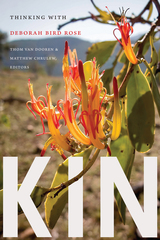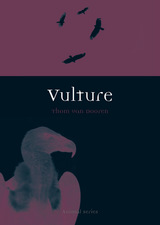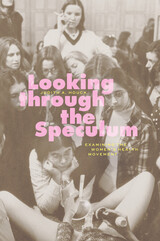
Contributors. The Bawaka Collective, Matthew Chrulew, Colin Dayan, Linda Payi Ford, Donna Haraway, James Hatley, Owain Jones, Stephen Muecke, Kate Rigby, Catriona (Cate) Sandilands, Isabelle Stengers, Anna Tsing, Thom van Dooren, Kate Wright

The emerging field of multispecies studies, grounded in passionate immersion in the lives of fungi, microorganisms, animals, plants, and others, is opening up novel ways of engaging with worlds around us. This issue brings together some of the leading scholars in this field to explore what is at stake—epistemologically, politically, ethically—for different forms of life caught up in diverse relationships of knowing and living together. The collection takes us into the worlds of sheep and shepherds; of stones, worms, salmon, and forest-devouring beetles; of viruses and their elephants; of seals, crows, and lava flows in Hawaii; and finally of frogs-as-pregnancy-tests and possible agents of pathogenic fungal spread. Each of the contributors explores what difference curious and careful attention to others might make in our efforts to inhabit and coconstitute flourishing worlds in these difficult times.
This issue is freely available online at environmentalhumanities.org; a print version is available for purchase.

Simply because they are large scavenging birds, vultures are often viewed as harbingers of death. But, as Thom van Dooren shows in this cultural and natural history, that dominant association leaves us with a very one-dimensional understanding of a group of actually rather fascinating and diverse creatures.
Vulture offers an enlightening new history of this much-misunderstood bird. Vultures vary in type and size, and while some have a diet mainly of bone, others are actually almost completely vegetarian. Most interesting, despite its notorious association with death, the vulture very rarely, if ever, kills for itself. In different cultural mythologies, vultures play a role in disposing of the dead and officiating over human sacrifices, but they have often been viewed as courageous and noble creatures as well—believed to be indispensable in the containment of waste and disease and even to be world creators and divine mothers. Van Dooren explores these many histories, from some of the earliest-known Neolithic sites in which vultures are thought to have consumed the dead to contemporary efforts to reintroduce the bearded vulture into the Alps.
Highlighting the rich diversity of vultures and the many ways in which people have understood and lived with them, Vulture invites a new appreciation and wonder for these incredible birds.
READERS
Browse our collection.
PUBLISHERS
See BiblioVault's publisher services.
STUDENT SERVICES
Files for college accessibility offices.
UChicago Accessibility Resources
home | accessibility | search | about | contact us
BiblioVault ® 2001 - 2024
The University of Chicago Press









